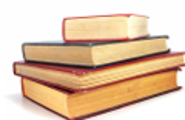 Early Literacy
Early Literacy
Early literacy is everything a child knows about reading and writing before he or she can write. Children get ready to read long before they start kindergarten. You can help by singing, rhyming, playing, and reading aloud every day with your children. Every Child Ready to Read teaches parents and caregivers about the six basic skills that comprise early literacy and help determine whether a child will be ready to learn to read and write: Print Motivation, Print Awareness, Letter Knowledge, Vocabulary, Phonological Awareness, and Narrative Skills.
In more familiar terms:
TALK, SING, READ, WRITE, AND PLAY
Help prepare young children to be readers with these five simple activities that are fun yet powerful ways to encourage early learning.
Talk Together
Children learn about language by listening and joining in the conversation. Talk as you play and choose books that interest your children to talk about!
Sing Together
Fingerplays, rhymes and songs slow down language so children can hear the different sounds that make up words.
Read Together
Shared reading gets children ready to read. Kids who are read to are more likely to enjoy reading themselves.
Write Together
Encourage your children to write or draw. A first step to writing is to stimulate small motor muscle control with toys and art supplies.
Play Together
Children learn language by interacting with others and also with their physical surroundings.
Top 10 Resources on Early Literacy Development
- How Does Your Child Hear and Talk?
Every child is unique and has an individual rate of development. This chart represents, on average, the age by which most children will accomplish skills in hearing, understanding, and talking. - Activities to Encourage Speech and Language Development
The American Speech-Language-Hearing Association offers these age-appropriate ways that parents can engage their young children to help develop speech and language abilities. - Literacy Milestones: Birth to Age 3
Identifying a reading problem is a challenge without a sense for what typical literacy development looks like. Find out what language accomplishments are typical for most children from birth to age three. - The Roots of Reading
Hosted by Fred Rogers, The Roots of Reading looks at the earliest stages of literacy in such locations as a baby speech lab and a Head Start center. The show examines how parents, childcare providers, and kindergarten teachers can get children started on the road to literacy. This program is part of our PBS Launching Young Readers series about how children learn to read, why so many struggle, and what we can do to help. - Parent Reading Tips
A child’s success as a reader begins much earlier than the first day of school. Reading, and a love for reading, begins at home. Our one-page Parent Tips offer easy ways for parents of babies, toddlers, preschoolers, and kindergartners to help their kids become successful readers. (in English and 10 other languages). - Environmental Print
Letters are all around us! Here are some ideas to use print found in your everyday environment to help develop your child’s reading skills. - Get Ready to Read: Screening Tool
“Get Ready to Read” is a free, research-based, and easy-to-use screening tool. It consists of 20 questions that parents and caregivers can ask a four-year-old to see if he or she is on track for learning how to read. - Advocating for Your Preschool Child
It’s never too early to start looking for ways to help your child succeed in learning. This article covers children who are under 2 and who are in pre-school. They have rights under the Individuals with Disabilities Education Act (IDEA). Find out the first steps to take if you suspect your child has difficulty learning. - From Babbling to Books
In this one-hour professional development webcast, Todd R. Risley, Sharon Landesman Ramey, and Julie Washington discussing research-based strategies for developing language and pre-reading skills in young children. - Research on Early Literacy and Preschool
Browse our library of selected research studies that investigate issues important to early literacy and preschool, including evidence of the effect of quality preschool on school readiness and characteristics of quality pre-K programs.
Early Literacy
Websites for Parents & Caregivers
- Six Early Literacy Skills – Six simple ways to understand the value of literacy for pre-readers
- Reading Tips for Parents – Techniques to encourage a lifelong love of reading in children (En Espanol)
- Get Ready to Read – Skill-building activities to prepare children for school
- Colorado Early Learning & Development Guidelines – Information about child development, by age group. (En Espanol)
- National Center for Infants, Toddlers, and Families – Tips and tools for early literacy
- Earlier Is Easier – Activities to engage children ages 0-3 through song, play, talking, writing, laughing, and reading
- StoryBlocks – 30-60 second videos with stimulating songs, rhymes, and fingerplays (En Espanol)
- Songs for Teaching – Fingerplays and action rhymes with music and how-to act them out


